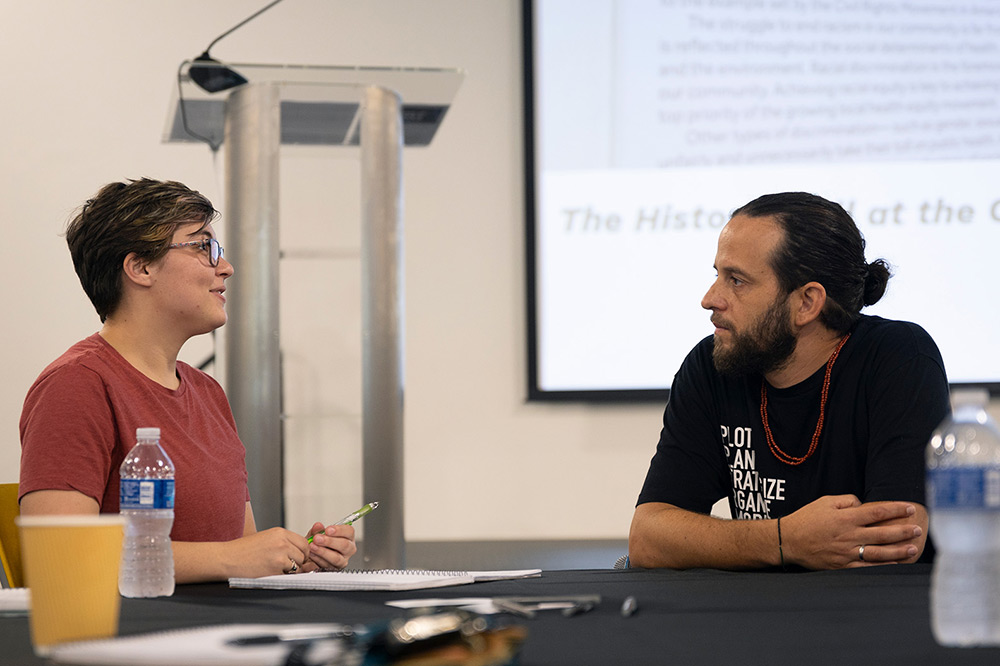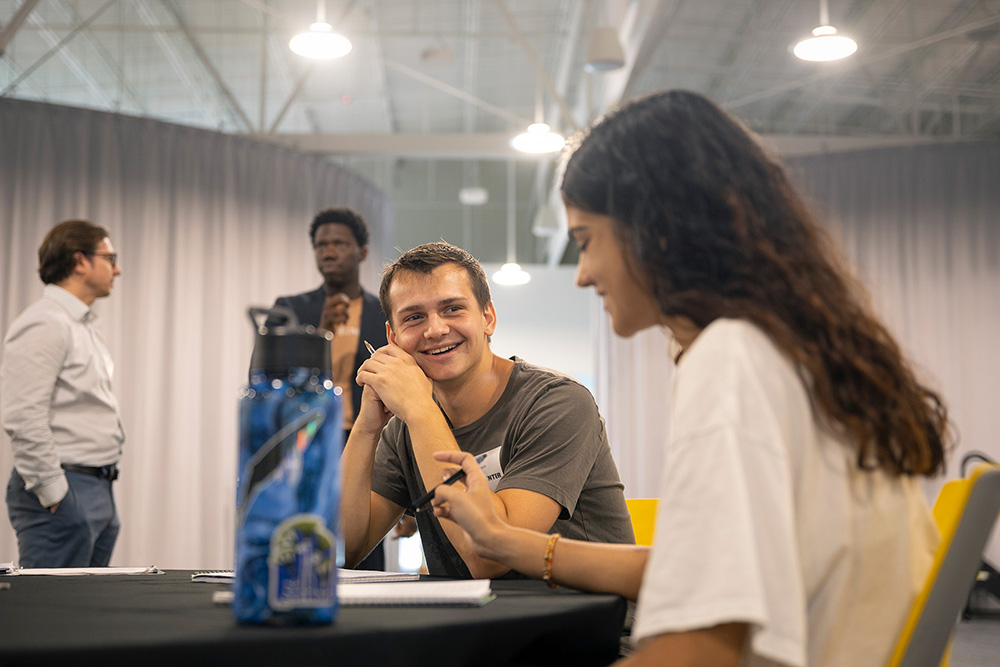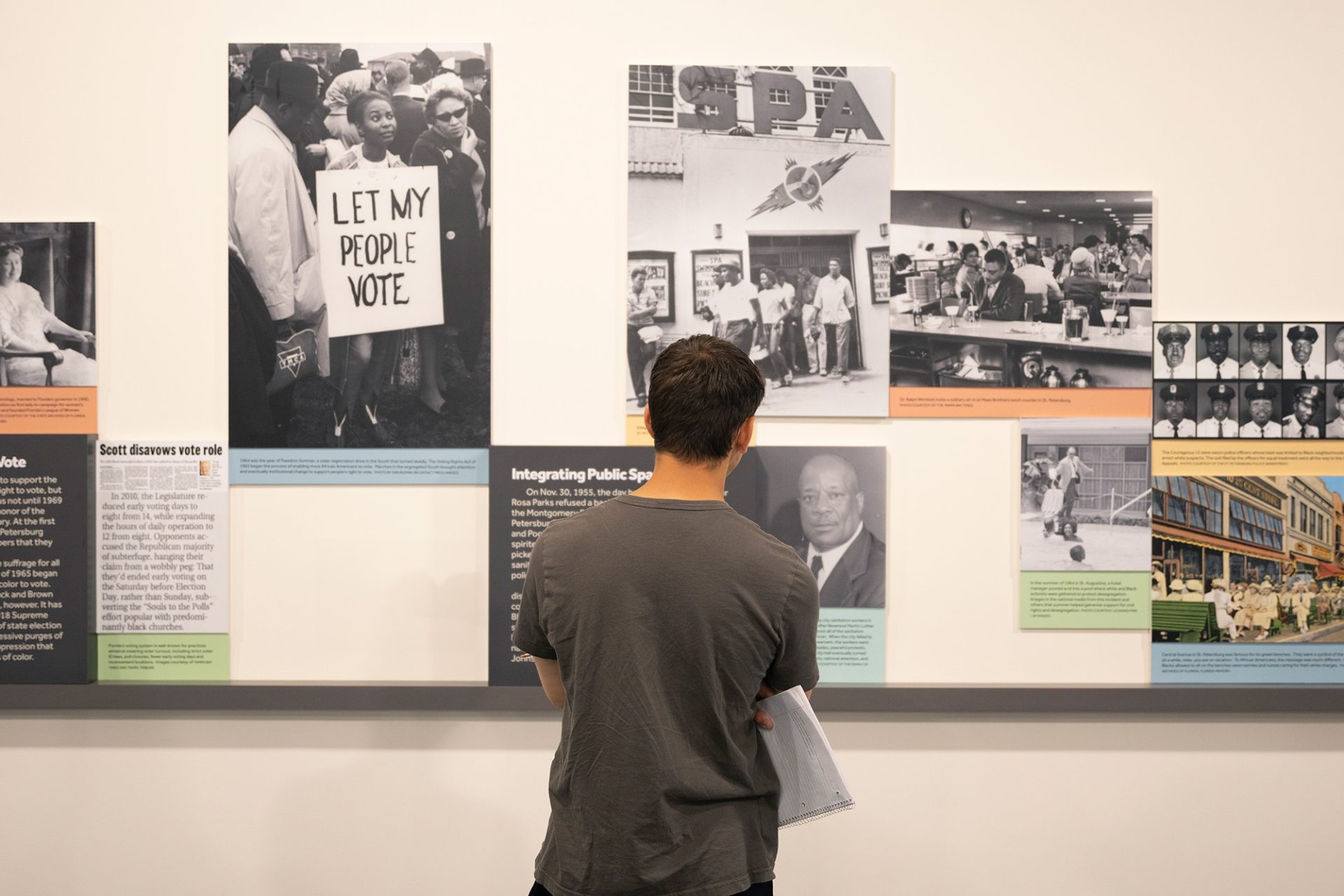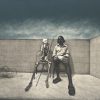Eckerd College Honors Program students stood transfixed as their eyes scanned the history wall at the Foundation for a Healthy St. Petersburg’s Center for Health Equity on Sept. 14.
Stories of lynchings, segregated hospitals, stolen land and more displayed next to historical photographs were a part of the day’s lesson in Scientific Ethics and the Common Good—a new co-taught Eckerd course developed and funded with a grant from the Alfred P. Sloan Foundation.
Avery DePriest, a sophomore psychology student originally from St. Louis, Missouri, enrolled in the class to learn more about how ethics play a role in research itself and the history of scientific research. At the Center, Avery also learned something unexpected.
“Hearing the history of medical experimentation and Black people makes me more empathetic to some people’s mistrust of the medical community regarding things like vaccines,” Avery explains.
“Knowing more about medical malpractice, segregation and discrimination prepares me to take what I know and apply it when viewing other people’s situations to understand why certain people live in the areas they do and other factors that may contribute to health issues.”

Avery DePriest ’26 (left) chats with Innovation Officer Joshua Bean.
Assistant Professor of Chemistry Jalisa Ferguson, Ph.D., and Visiting Assistant Professor of Classics Michael Goyette, Ph.D., co-teach the course exploring ethical issues associated with scientific, technological and medical advancements, along with their impacts on the local environment, animals, or marginalized communities. Ferguson and Goyette say students also will be required to complete an individual community engagement project where they will identify an organization, complete 10 hours of service or engagement, and then write connecting their community engagement with ethical topics examined in the course.
The class will take two trips to the Center this semester as a part of its exploration. On the first visit, Innovation Officer Joshua Bean invited the students to reflect publicly on the history wall and a video about the history of segregated medical care in St. Petersburg.

Leo Dutkewych ’26 (center) talks with Priya Verma ’27 (right) during their visit to the Center for Health Equity.
The Center’s Executive Director Marcus A. Brooks says it is exciting to continue hosting classes from Eckerd College and creating space for not only learning but discussion about important issues surrounding equity in the local community.
“It was actually a request from Professor Goyette to have a class visit [in a course he’d taught previously] that made us activate the history wall because we wanted to be able to share this information with the young people,” Brooks explains. “We look forward to many more collaborations with Eckerd College in the future.”
Avery is looking forward to returning as well, saying, “I just want to know more.”













